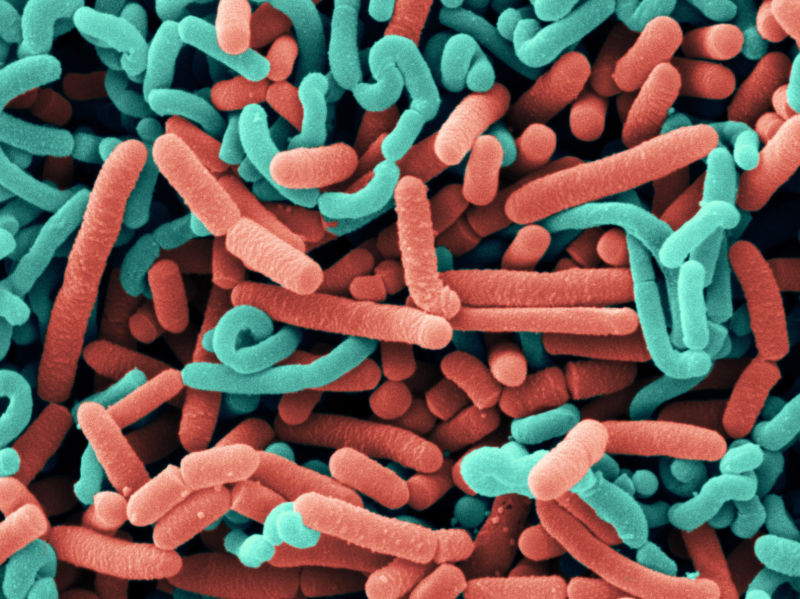The immune system listens in on bacteria signaling to each other

Enlarge / Lactobacillus acidophilus and L. casei cultured from a commercial probiotic food gel sold in health food stores. (credit: Getty | Scimat)
One bacterium does not an infection cause; the microbes work as a team. Some species send and receive molecular signals so they can keep tabs on how many fellows surround them, a process known as quorum sensing. Virulence kicks into high gear when this signaling indicates that the bacterial population reaches a certain density threshold-the requisite quorum.
One species that relies on quorum sensing is P. aeruginosa, a nasty pathogen that infects and causes disease in plants, animals and, when an opportunity presents itself, in humans. It is a leading cause of morbidity and mortality in burn victims, people with cystic fibrosis, and people who are immunocompromised, like AIDS patients. It is also a major contributor to nosocomial infections (infections that originate in hospitals). Obviously, it is resistant to multiple classes of antibiotics.
AhR is a protein found on the exterior of human cells that senses outside molecules. When activated by one of these molecules, it activates target genes. It was initially identified as the receptor that mediates the toxic effects of synthetic compounds like dioxins and related industrial pollutants.
Read 5 remaining paragraphs | Comments